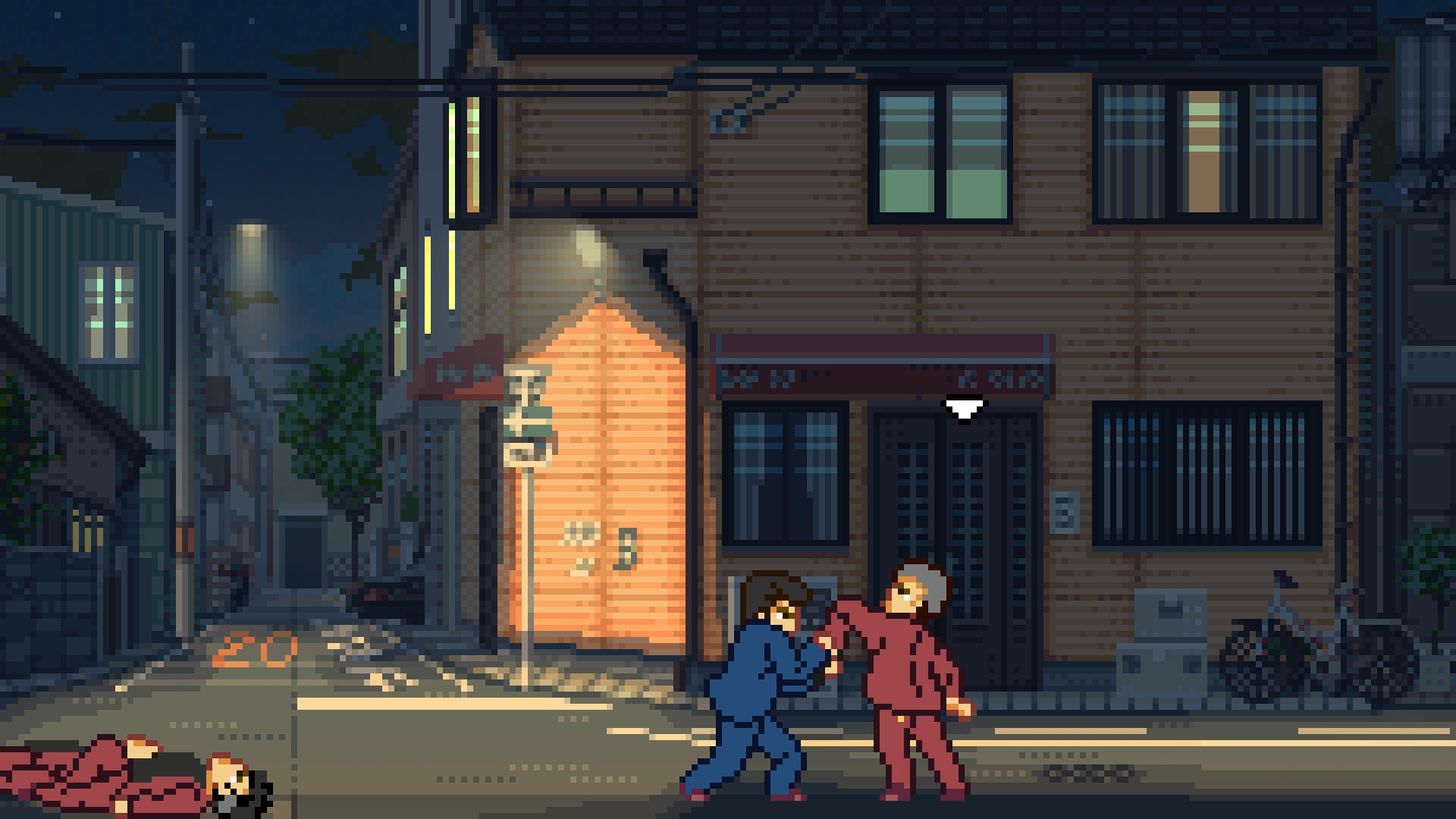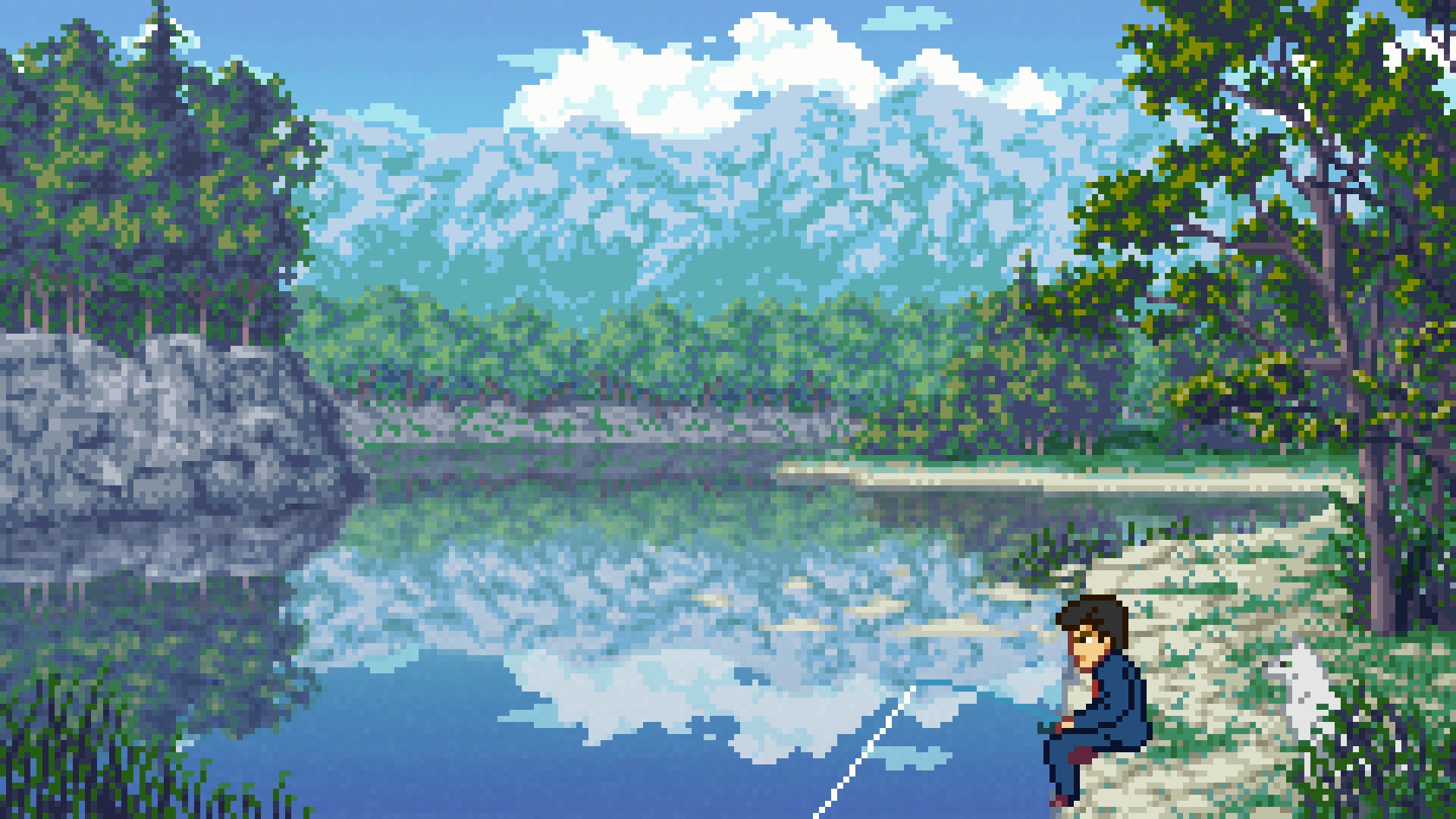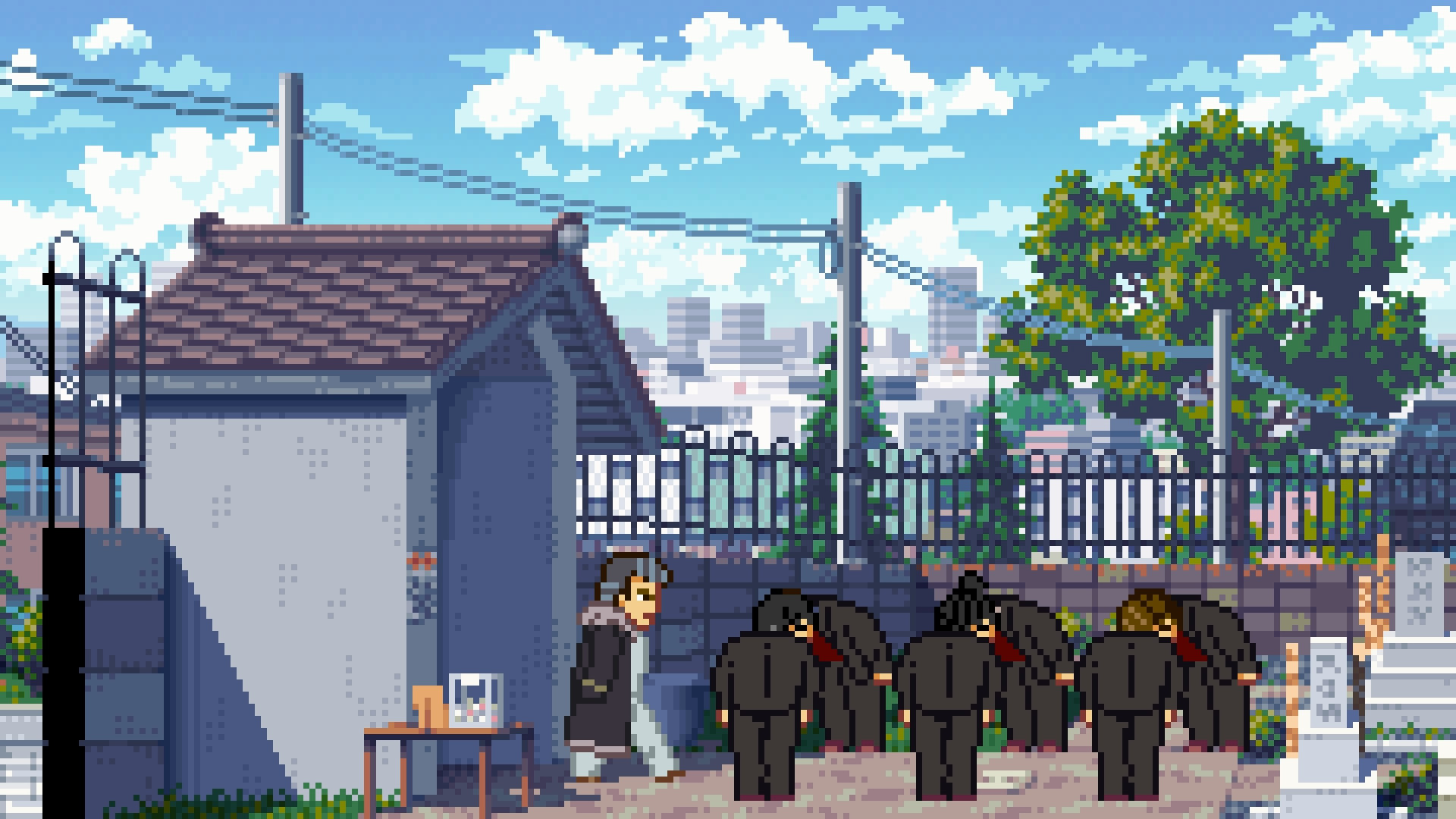Official Review
It's the tone that really gets me with Yeo's work. Much like Ringo Ishikawa, Fading Afternoon looks like a fast-paced brawler in the mold of the likes of Double Dragon, and superficially it is that when you get into combat. Yeo's provided players with a rich toolkit of attacks, counters, and grapples, and while you'll probably find a preferred approach and stick to it rather than experiment around, the dynamics are visceral and high impact enough to convey a sense of extreme violence.
But that's not where the substance is with Fading Afternoon. And, importantly, Yeo knows that and makes a point of those pockets of action. The rest of the time – the vast majority of the time – Fading Afternoon slows to a crawl, as you watch the protagonist slowly chug from one location to the next. You play as Seiji Maruyama, a middle-aged yakuza veteran who has just been released from prison and needs to find his way in the world again.

On the outside, he discovers that his old allies are fading in influence, and the world that he knew seems to have left him behind. He has the opportunity to join a crime organization again, and does so… albeit with a sense of melancholia about it. He has little choice, though. The tiny bit of money he has won't get him more than a few days in his hotel room.
However, it's also important to note that in Fading Afternoon, you're playing as a man in a very different stage of life when compared to the youth of Ringo. With Ringo, you were playing as a bored teenager. And, sure, the kid had issues and had fallen in with a bad crowd, but he was still at the start of life and as much as the game offered mused on the big existential questions about the meaning of life, it also came with a sense that there was a future for the guy. And perhaps he was even going to be able to turn his life around (or make the active decision not to.

Seiji is in a very different position in life. It's no longer a "cute" rebellion or response to being uncomfortable with his position in life. Now he's facing the melancholic crisis of realizing that he has wasted his life and in a position of resignation rather than rebellion. This atmosphere is so repressive that the world starts to feel claustrophobic after a while, and without giving too much away, there is no hope for Seiji and that is something that you very definitely feel as you play.
What is similar between both games is how they deliver their stories. Yeo's big on emergent experiences. He uses the absolute minimum of dialogue and cut scenes. Instead, the story is told through the experiences that you have through exploring the world and figuring out what you can do in it. And through it's very specific pacing and that contrast between the frenzy of action and then the long drudgery of the rest of it. In-game days fly by in just minutes in Fading Afternoon, and at first, that feels restrictive, but after a few hours of play you realize that it establishes a cadence and rhythmic structure to the action. It's almost, dare I say, operatic in the way that the storytelling experience is framed by its rhythmic structure more than anything that could be called traditional storytelling.
The problem that Yeo faces is that a lot of what he does in the name of art comes at the expense of what would be considered "best practice game design." It's not a good idea to produce a nominal action game where most of the time is spent slowly walking from place to place (without even a run button). Leaving players to figure things out for themselves is not a great idea in an era where other developers fall over themselves to provide a yellow brick road for players to follow. Critically – at a time where stories spell the minutiae out for players, in triplicate, to avoid any meaning being lost, asking players to interpret a narrative for themselves is asking for a lot of them to miss it.

I appreciate Yeo for being willing to put himself out there, put the art ahead of the commercial best practices, and craft something that is eccentric, nuanced, and even profound. Fading Afternoon isn't an "entertaining" game in the traditional sense, but it's a powerful one that will leave you reflective and pensive by the time you put it down. The games industry needs more people like Yeo.

